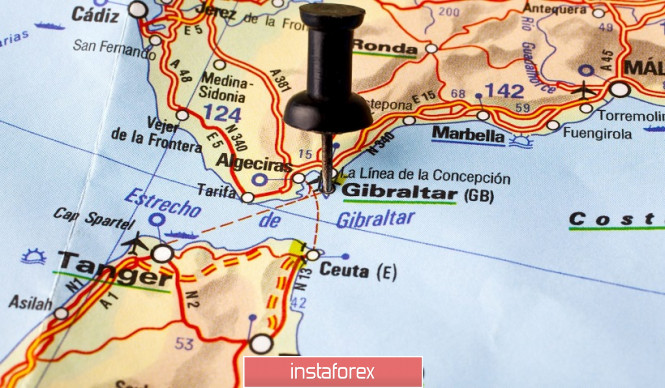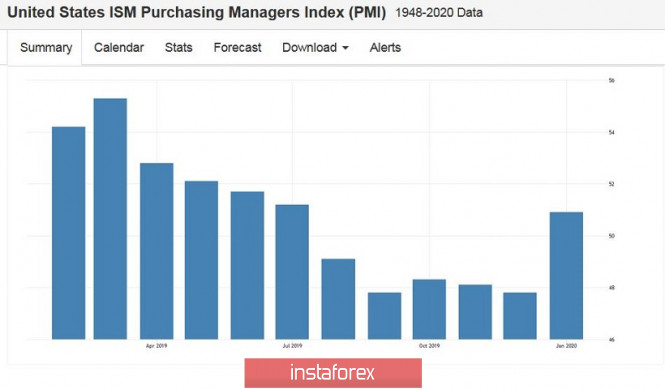The pound-dollar pair is going through hard times again: Britain is seriously worried about the prospects for further relations between London and Brussels, after a surge of optimism due to the January meeting of the Bank of England.. European and British politicians with their comments only stimulate interest in this topic. It can be said that all the most controversial issues that were resolved during the negotiation process are returning to the agenda again. The transition period began with harsh statements that put significant pressure on the pound: the GBP/USD pair literally collapsed 200 points in a day, returning to the area of the 29th figure.
The British overseas territory - Gibraltar, became an obstacle again. A few centuries ago, the British conquered this strategically important piece of territory from the Spaniards, and since then, disputes over its ownership have not ceased between the countries. British sovereignty was formalized by the Utrecht Treaty of 1713, but Spain never recognized it.

During the Brexit negotiation process, Madrid reasonably decided that for the first time in many years it had effective leverage in negotiations on this issue. After a long fight, the British agreed to conduct direct consultations on the disputed territory, and not as part of general negotiations with the EU. At the same time, the Spaniards demanded separately to prescribe in the draft transaction a clause that London undertakes to agree with Madrid on the fate of Gibraltar. At that time, Gibraltar was not mentioned at all in the agreement - the text contained only a vague clause that all outstanding issues would be agreed upon by Britain and the EU after the country officially left the Alliance. The issue of ownership was not discussed then - at the end of 2018, the parties focused only on the fate of the Spaniards who live and work in Gibraltar. According to statistics about 15 thousand people daily come to Gibraltar from Spain to work. Now, passport checks should arise at the border, which will inevitably lead to long lines, additional costs and other inconveniences. It is worth noting that, at a historical referendum, the majority of Gibraltar residents voted to remain in the European Union.
At the end of the year, London undertook to agree with Spain on the fate of Gibraltar, and now, as they say, "the time has come". Brussels has already announced that it will support the Spaniards "in the matter of its territorial claims" in Gibraltar. This irreversible position increased pressure on the British currency. And it is worth noting that the problem of Gibraltar is far from the only one of its kind. Another difficult issue is Britain's observance of EU rules and a mechanism for resolving possible conflicts. The European side insists that London comply with EU standards in exchange for access to a single market. Boris Johnson, in turn, rejects this ultimatum, declaring government's readiness to abandon negotiations with Brussels on a trade deal.
In addition, the British leader proposes the so-called "Canadian version" of the trade agreement. According to which, London will conclude a deal with Brussels similar to the Comprehensive Free Trade Area Agreement (SETA) between the European Union and Canada. This will allow the UK to enter into trade agreements with third countries. The main negotiator from the European Union, of course, rejects this idea. Obviously, if the parties do not compromise in the foreseeable future, the likelihood of a trade deal between Brussels and London will decrease day by day, putting pressure on the pound.
Traders are also concerned about the tight deadlines for the transition period: experts unanimously argue that the parties will not have time to agree on a colossal volume of issues in a few months. For example, the EU entered into a trade agreement with Canada only after eight years of the negotiation process. Similar negotiations with Japan lasted almost seven years, and with Singapore - almost 10. Analysts believe that certain issues will be agreed before the end of this year, but the most complex and strategically important problems will remain unresolved. Among them are the access of European agricultural producers to the British market, the regulation of European automotive giants, the access of the French, Germans, and Spaniards to British waters for fishing and the aforementioned issue of Gibraltar.
Thus, the British currency is now under significant pressure amid fierce trade negotiations between London and Brussels.
In turn, the US dollar regained its position yesterday due to the ISM manufacturing index, which exceeded the key 50-point mark - for the first time since July last year. It is worth recalling that the December figure unexpectedly collapsed to 10-year lows, reaching 47.2 points. Therefore, the January result brought the dollar back to life after an unstable sharp decline on Friday (the factor of the completion of the week and month played here - many traders took profits). Moreover, the inflation component of the indicator - the Indicator of the dynamics of growth in commodity prices also showed a positive trend, rising to 53.3 points.

The prevailing fundamental picture allows the bears of GBP/USD to test the nearest support level of 1.2950 in the foreseeable future - this is the lower line of the Bollinger Bands indicator on the daily chart.
The material has been provided by InstaForex Company - www.instaforex.com